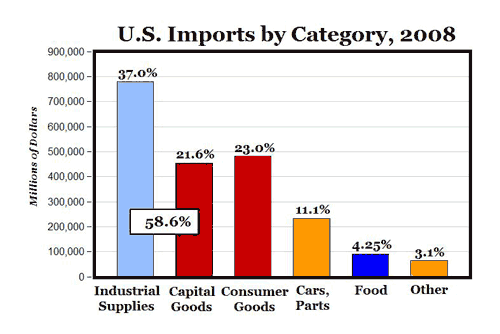
WSJ — “President Obama and other administration officials argue that the Chinese currency is undervalued. That makes Chinese exports artificially cheap in terms of other foreign currencies, contributing to the U.S.’s large trade deficit with China and, they say, depriving Americans of jobs. Treasury Secretary Timothy Geithner said during his Senate confirmation hearings in early 2009 that Mr. Obama believed China was manipulating its currency.
Don Boudreaux responds here and here. Here’s my response:
1. It’s a strange use of the word “manipulate,” which means:
a. “To influence or manage shrewdly or deviously.”
b. “To tamper with or falsify for personal gain.”
In this case the “manipulation” is to America’s advantage and China’s disadvantage, because the undervalued yuan and overvalued dollar makes Chinese goods cheaper and more affordable for American consumers and companies, saving us billions of dollars, and making us wealthier and China poorer. It would be like accusing Wal-Mart of “manipulation” for offering “Everyday Low Prices,” and saving Americans billions of dollars??
2. As the chart above shows, almost 60% of imported goods are: a) industrial supplies (chemicals, commodities, raw materials, etc.) and b) capital goods (machinery, equipment, parts, tools, etc.) which are mostly purchased by AMERICAN COMPANIES as inputs for production in the United States. Being able to purchase Chinese and other foreign inputs at the lowest possible price makes American companies MORE competitive, sell MORE of their products, and hire MORE American workers. Therefore, China’s currency “manipulation” helps American companies and actually SAVES and CREATES jobs here.
- Bulenox: Get 45% to 91% OFF ... Use Discount Code: UNO
- Risk Our Money Not Yours | Get 50% to 90% OFF ... Use Discount Code: MMBVBKSM
Disclaimer: This page contains affiliate links. If you choose to make a purchase after clicking a link, we may receive a commission at no additional cost to you. Thank you for your support!



I don’t know if that logic follows for capital goods.